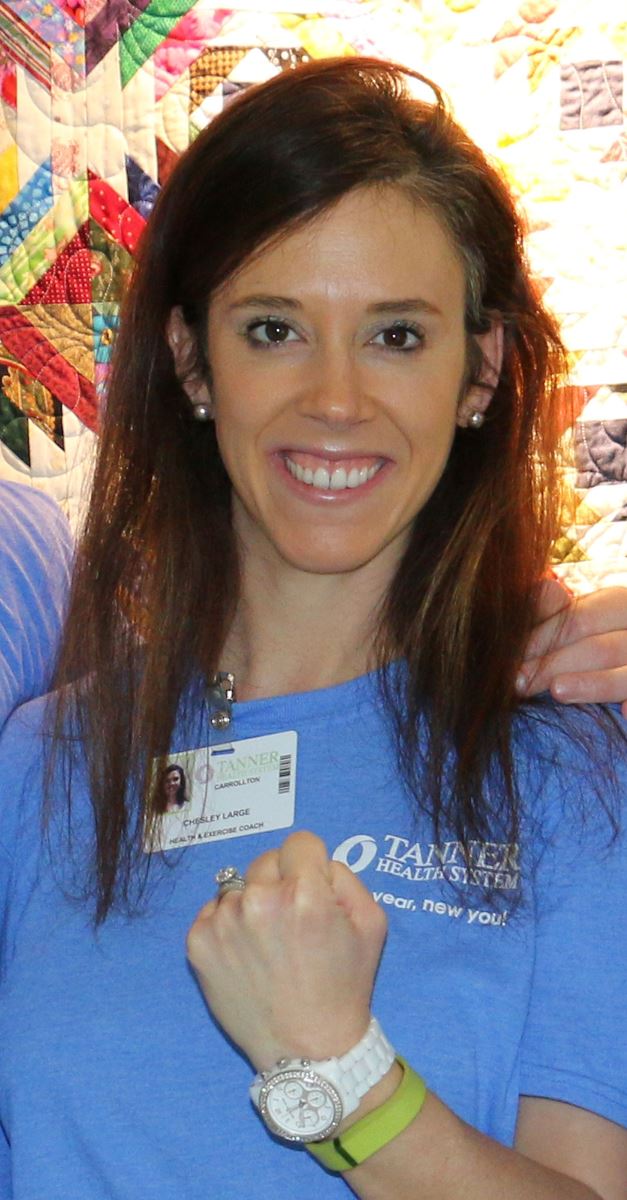Getting adequate exercise is an essential part of a healthy lifestyle. But a report released recently by the Robert Wood Johnson Foundation and the University of Wisconsin Population Health Institute found that 28 percent of the residents in Carroll, Haralson and Heard counties, 25 percent of Douglas County residents and 24 percent of Paulding County residents get an inadequate amount of physical activity.
 Chesley Large, CWWS, SET, a health coach at Tanner Health System with more than five years’ experience in health coaching and developing health and wellness programs, answers some questions on why getting exercise is important and how much exercise you need. Large is a certified worksite wellness specialist and a specialist in exercise therapy.
Chesley Large, CWWS, SET, a health coach at Tanner Health System with more than five years’ experience in health coaching and developing health and wellness programs, answers some questions on why getting exercise is important and how much exercise you need. Large is a certified worksite wellness specialist and a specialist in exercise therapy.
Q. Why is it important to get 30 minutes of exercise a day?
A. Physical activity is essential to lowering your risk for heart disease and stroke, controlling your weight and your blood pressure, reducing your cholesterol and more. That’s why Get Healthy, Live Well encourages people to get at least 30 minutes of exercise five or more times a week.
Q. Do I have get 30 minutes at the same time?
A. No. Even if you have to break down your exercise time into 10- or 15-minute increments, you still benefit. So you can take a quick stroll on your lunch break or jog a few quick laps around the parking lot after work to help you toward your 30-a-day goal.
Q. What do I do if I don’t have time to exercise?
A. If you don’t have time, you’ll have to make time. Getting active while watching TV is a great example. Spread out your yoga mat and strike some poses or keep some free weights next to the couch for a little impromptu lifting. You can also jump on a stationary bike or a treadmill while you watch TV.
Also, consider becoming an “active commuter.” Look for opportunities to walk or bike to work, allowing extra time for you to reach your destination. A backpack can help you pack some work clothes to change into after you arrive, along with your laptop or other gear you may need for work, while keeping your hands free and helping you stay comfortable during your commute.
Q. What should I know before I start exercising?
A. If you’re new to exercising, talk to your primary care provider to see if he or she recommends any tests or tips for your routine. Some providers may want to perform an electrocardiogram (EKG) to ensure that your heart is healthy enough for exercise, or evaluate your medications to make sure they’re safe.
Also, you should stretch before and after your workout. Stretch all your major muscle groups, including your arms, shoulders, back, hips and legs. When you hold a stretch, keep your body relaxed and breathe slowly. You should feel pulling but no pain. Don’t bounce; you could injure your muscles. And hold the stretch for 10 to 30 seconds, then relax and repeat at least four times.